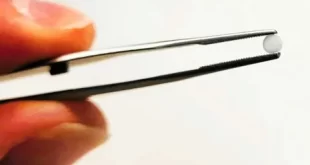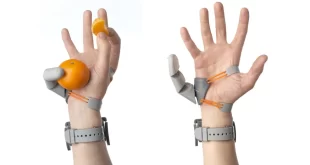Ref LiU-2023-03559
We have the power of over 40,000 students and co-workers. Students who provide hope for the future. Co-workers who contribute to Linköping University meeting the challenges of the day. Our fundamental values rest on credibility, trust and security. By having the courage to think freely and innovate, our actions together, large and small, contribute to a better world. We look forward to receiving your application!
We are now looking to appoint a Postdoc in scientific visualization group at Linköping University formally formally based at the Department of Science and Technology, Campus Norrköping
Research area
Visual analysis of high-resolution spectral data from photon-counting detector computer tomography imaging (PCD-CT)
Work assignments
A Postdoc will essentially carry out research. The position may also involve teaching, but during no more than a fifth of work time.
The objective of this PostDoc is to develop methods for the analysis and visualization of data collected from a new Photon-Counting Detector Computer Tomograph (PCD-CT) at the Center for Medical Image Science and Visualization (CMIV) at Linköping university. It offers new opportunities in imaging the coronary arteries and assessment of cardiac function. This technology is groundbreaking and currently limited to very few centers in the world. The larger context of this project is to develop a pipeline for the generation of personalized heart models improving the treatment of cardiovascular diseases in the future.
You will be part of the team that develops methods to supports an efficient and effective analysis of the data for diagnosis and model building, integrated into a visual data browser with high-quality rendering. Your part involves researching extensions to commonly used methods, like volume rendering or flow visualization, to this new kind of data.
This position is part of a joint collaboration between the two largest research programs in Sweden, the Wallenberg AI, Autonomous Systems and Software Program (WASP) and the SciLifeLab and Wallenberg National Program for Data-Driven Life Science (DDLS), with the ultimate goal of solving ground-breaking research questions across disciplines. The SciLifeLab and Wallenberg National Program for Data-Driven Life Science (DDLS) is a 12-year initiative that focuses on data-driven research, within fields essential for improving the people´s lives, detecting and treating diseases, protecting biodiversity and creating sustainability. The programme will train the next generation of life scientists and create a strong computational and data science base. The program aims to strengthen national collaborations between universities, bridge the research communities of life sciences and data sciences, and create partnerships with industry, healthcare and other national and international actors. Read more: https://www.scilifelab.se/data-driven
Within the WASP-DDLS financed project “Huge Complex Diagnostic Imaging Data”, two postdoc will work jointly on a pipeline for the generation of personalized models from huge complex imaging data.
Qualifications
To be qualified to take employment as postdoc, you must have been awarded a doctoral degree or have a foreign degree that is deemed to be equivalent to a doctoral degree. This degree must have been awarded at the latest by the point at which LiU makes its decision to employ you.
It is considered advantageous if your doctoral degree is no older than three years at application deadline for this job. If there are special reasons for having an older doctoral degree – such as taking statutory leave – then these may be taken into consideration.
We are looking for an experienced researcher with a background in applied visualization and rendering. The candidate should hold a PhD degree in Computer Science or a related subject. The candidate should have excellent programming skills in c/c++ or similar, and good knowledge of graphics programming. Fluency in spoken and written English is beneficial. Since the position is on the interface between image analysis and visualization strong skills in interdisciplinary communication and collaboration are required.
Great emphasis will be placed on personal qualities and suitability.
The workplace
You will be employed in the department of Science and Technology and the division Media and Information Technology.
The employment
This post is a temporary contract of two years with the possibility of extension up to a total maximum of three years. The position as a postdoc is full-time.
Starting date
By agreement.
Salary and employment benefits
Salaries at the university are set individually. State your desired salary in the application.
More information about employee benefits is available here.
Union representatives
Information about trade union contacts can be found here.
Application procedure
Apply for this position by clicking on the button labelled “Apply” below. Your application must reach Linköping University no later than October 16, 2023.
Applications received after the deadline will not be considered.
We welcome applicants with different backgrounds, experiences and perspectives – diversity enriches our work and helps us grow. Preserving everybody’s equal value, rights and opportunities is a natural part of who we are. Read more about our work with: Equal opportunities.
We look forward to receiving your application!
Linköping university has framework agreements and wishes to decline direct contacts from staffing- and recruitment companies as well as vendors of job advertisements.
Contact persons
Ingrid Hotz
Professor, unit manager
+46 11 363462
Martina Klefbeck
HR partner
011-363166
Características del Puesto
| Categoría de Puesto | Postdoctoral |
 Etudes Non Stop Estudio sin parar
Etudes Non Stop Estudio sin parar



